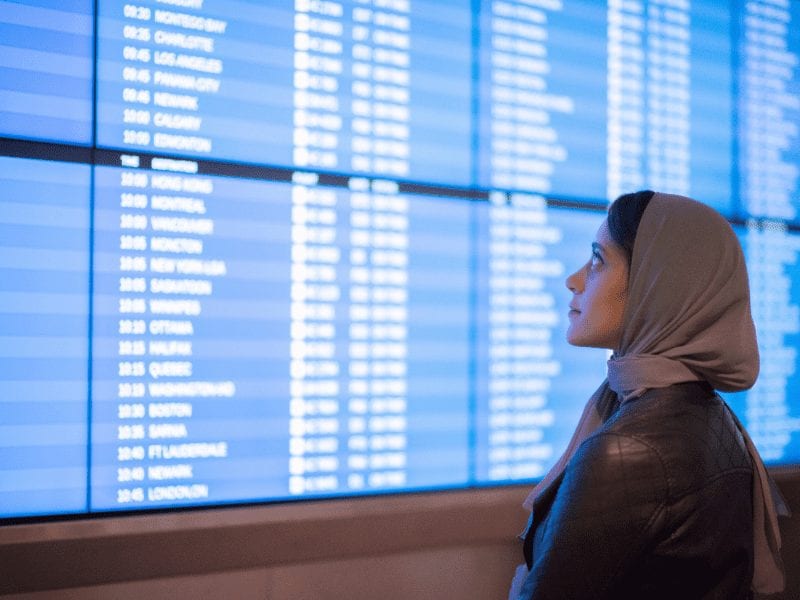President-Elect Joe Biden has pledged to end the controversial “Muslim Ban” on the first day of his presidency and the largest US-based Muslim civil rights organization, Council on American-Islamic Relations, or CAIR, intends to hold him to that.
The extremely divisive travel bans were instated through executive order in the early days of the Trump presidency and have been derided by critics who refer to them as “Muslim Bans.” In a statement acknowledging the recent Biden victory, Nihad Awad, the CAIR National Executive Director noted:
“CAIR congratulates President-Elect Joe Biden on his electoral victory, and for building an inclusive election campaign focused on the unity of our nation. President-elect Biden has pledged to end the Muslim Ban on his first day in office, include Muslims at every level of his administration and address issues of racial and religious discrimination. We plan to join other American Muslim leaders and organizations in ensuring that the Biden administration fulfills these promises. We also plan to continue holding our government accountable when it errs.”
CAIR Statement on 11/7/20
Trump’s Travel Ban, as known as Executive Order 13769 – Protecting the Nation from Foreign Terrorist Entry into the United States, currently extends to 13 countries including Iran, Libya, Somalia, Sudan, Syria, Yemen, Nigeria, Myanmar, Eritrea, Kyrgyzstan, Sudan, Venezuala and Tanzania. The list has evolved over time initially including Iraq and Chad and earlier in 2020 expanding to include Nigeria, Myanmar, Eritrea, Kyrgyzstan, Sudan and Tanzania.
The controversial nature of these travel restrictions is indisputable. In the wake of the initial travel bans, protests broke out along with legal challenges. Thus far, the Trump administration has largely seen their travel restriction policies upheld including a 5 to 4 Supreme Court victory in Trump v. Hawaii where the court essentially found that Trump was acting within his constitutional authority.
The victory may be short-lived as Biden intends to revoke, via executive order, much, if not all, of the Trump travel bans.
During his candidacy, it was a familiar refrain. The DailyMall notes, “A new administration led by Biden would also rescind what the campaign calls ‘the un-American travel and refugees bans, also referred to as “Muslim bansâ€.’
CAIR intends to hold the President-elect to his word.
Read the full CAIR statement here.
- Fun Holiday Themed Face Masks
- US DOT giving out free masks to travelers
- Delta Face Mask Policy
- Southwest Face Mask Policy
- United Airlines Face Mask Policy
- Spirit Face Mask Policy
- British Airways Face Mask Policy
- Where to buy a Face Mask for Travel
- See all Face Mask Policies here


2 comments
How can it be called a Muslim travel ban if Myanmar (Buddhist) and Venezuela (Catholic) and Nigeria (Christian majority) are included on the list? While the huge Muslim countries of Saudi Arabia, Pakistan, Indonesia, Kuwait, Jordan, Morroco, Egypt etc. are not banned?
Because trump probably wanted to call it that to rile up his base.
I hope Biden does not willy nilly rescind all trump policies just to appease his base.